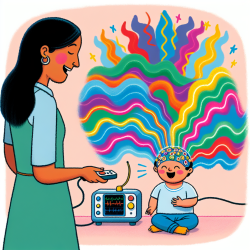The COVID-19 pandemic has brought about a paradigm shift in the way we conduct neuropsychological testing. As face-to-face interactions became limited, the feasibility of remote neuropsychological testing emerged as a critical area of research. The study titled Remote versus face-to-face neuropsychological testing for dementia research: a comparative study in people with Alzheimer's disease, frontotemporal dementia and healthy older individuals provides valuable insights into this new testing modality. Here's what practitioners need to know to leverage these findings for better outcomes.
Key Findings from the Study
The study compared remote and face-to-face neuropsychological testing across various cognitive domains in patients with Alzheimer's disease (AD), frontotemporal dementia (FTD), and healthy older adults. The findings are promising:
- Feasibility: Remote testing is feasible for neuropsychological assessments, with most cognitive domains showing no significant performance differences between remote and face-to-face settings.
- Adaptability: Tasks like working memory, executive function, and language tests demonstrated comparable performance across both environments.
- Comfort and Acceptance: Participants reported high levels of comfort with remote testing, suggesting that this method is well-accepted.
Practical Applications for Practitioners
Practitioners can take several steps to integrate these findings into their practice:
- Implement Remote Testing: Given the feasibility and acceptability of remote testing, practitioners should consider incorporating remote neuropsychological assessments into their practice. This can be particularly beneficial for patients who have difficulty traveling to clinics.
- Maintain High-Quality Standards: Ensure that the visual and auditory quality of remote testing materials is high to minimize any potential degradation of performance, especially for tasks requiring fine visual or auditory discrimination.
- Use Bayesian Analysis: Adopt a Bayesian approach to evaluate the strength of evidence in your assessments. This can provide a more nuanced understanding of the data, especially when dealing with small sample sizes.
Encouraging Further Research
While the study provides substantial evidence supporting the feasibility of remote neuropsychological testing, further research is needed to explore specific areas:
- Visuospatial Tasks: Additional studies should focus on tasks involving visuospatial skills, as these showed some variability in performance between remote and face-to-face settings.
- Longitudinal Studies: Conduct longitudinal studies to assess the stability of remote testing performance over time.
- Larger Cohorts: Future research should include larger sample sizes to validate these findings across diverse populations.
To read the original research paper, please follow this link: Remote versus face-to-face neuropsychological testing for dementia research: a comparative study in people with Alzheimer's disease, frontotemporal dementia and healthy older individuals.
By integrating these findings into practice and encouraging further research, practitioners can enhance the quality of care and support they provide to patients with neurodegenerative diseases.










